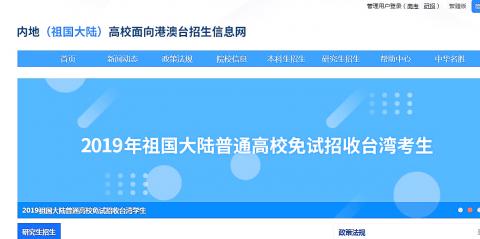Democratic Progressive Party (DPP) Legislator Lee Chun-yi (李俊俋) yesterday pledged to propose an “anti-united front act” based on US legislation to counteract “severe undermining of Taiwanese democratic values” by Chinese “united front” tactics.
Beijing’s tactics include actions such as purchasing Taiwanese produce, promoting travel to counties and cities governed by the Chinese Nationalist Party (KMT) and hosting Kaohsiung Mayor Han Kuo-yu’s (韓國瑜) visit to China last month, Lee said.
The world has recognized the threat of Chinese infiltration, he said, calling on the nation to face the issue.

Screen grab from the Internet
Other nations have enacted legislation to prevent infiltration via finance and media, Lee said.
“As the main target of Chinese infiltration and aggression, it is necessary to establish legislation to counter China’s ‘Anti-Secession’ Law,” Lee said.
Lee said his proposed act would focus on newer “united front” tactics that utilize media and commerce, while allowing extant laws to continue to govern their respective jurisdictions.
Lee said he is still drafting the bill and would reference US legislation, adding that the main difficulty would be defining what constitutes “united front” tactics, while observing the freedoms of speech and movement.
For politicians, short of declaring support for the “one country, two systems” concept, the freedom of speech should be respected, Lee said.
The lawmaker said he envisages creating a cross-agency task force to enforce the law, as the Mainland Affairs Council (MAC) and the National Communications Commission have their own areas of governance.
The National Security Bureau would be best suited for the duty, but it could not answer directly to the Legislative Yuan due to the nature of its responsibilities, Lee added.
In related news, China’s Fujian Province has completed preliminary studies on how to provide power to Kinmen and Lienchang counties, as well as water to Matsu, China’s Taiwan Affairs Office said.
Efforts to provide Kinmen and Lienchang counties with natural gas and the construction of bridges linking the islands to China’s Fujian are being mulled, it added.
Kinmen County Commissioner Liu Tseng-ying (劉增應) on March 20 said that he hoped the 2km bridge between the Huangqi Peninsula and Donggu Atoll (東古礁) would be prioritized.
The MAC has said that the bridge must be assessed and approved by the central government.
China’s policy of the “new four links” — water, electricity, natural gas and bridges — is geared to bring the residents of Kinmen and Matsu over to its side while pressuring the DPP administration, National Sun Yat-sen University professor Lin Wen-cheng (林文程) said.
From Beijing’s perspective, due to the counties’ locations and unique statuses, it could be easier for “united front” tactics to work there than in other counties and cities in Taiwan, Lin said.

Tropical Storm Gaemi strengthened into a typhoon at 2pm yesterday, and could make landfall in Yilan County tomorrow, the Central Weather Administration (CWA) said yesterday. The agency was scheduled to issue a sea warning at 11:30pm yesterday, and could issue a land warning later today. Gaemi was moving north-northwest at 4kph, carrying maximum sustained winds near its center of up to 118.8kph and gusts of 154.8kph. The circumference is forecast to reach eastern Taiwan tomorrow morning, with the center making landfall in Yilan County later that night before departing from the north coast, CWA weather forecaster Kuan Shin-ping (官欣平) said yesterday. Uncertainty remains and

SEA WARNING LIKELY: The storm, named Gaemi, could become a moderate typhoon on Wednesday or Thursday, with the Taipei City Government preparing for flooding A tropical depression east of the Philippines developed into a tropical storm named Gaemi at 2pm yesterday, and was moving toward eastern Taiwan, the Central Weather Administration (CWA) said. Gaemi could begin to affect Taiwan proper on Tuesday, lasting until Friday, and could develop into a moderate typhoon on Wednesday or Thursday, it said. A sea warning for Gaemi could be issued as early as Tuesday morning, it added. Gaemi, the third tropical storm in the Pacific Ocean this typhoon season, is projected to begin moving northwest today, and be closest to Taiwan on Wednesday or Thursday, the agency said. Today, there would likely

DISRUPTIONS: The high-speed rail is to operate as normal, while several airlines either canceled flights or announced early departures or late arrivals Schools and offices in 15 cities and counties are to be closed today due to Typhoon Gaemi, local governments announced last night. The 15 are: Taipei, New Taipei City, Taoyuan, Tainan, Keelung, Hsinchu and Kaohsiung, as well as Yilan, Hualien, Hsinchu, Miaoli, Chiayi, Pingtung, Penghu and Lienchiang counties. People should brace for torrential rainfall brought by the storm, with its center forecast to make landfall on the east coast between tonight and tomorrow morning, the Central Weather Administration (CWA) said. The agency issued a sea warning for the typhoon at 11:30pm on Monday, followed by a land warning at 11:30am yesterday. As of

CASUALTY: A 70-year-old woman was killed by a falling tree in Kaohsiung as the premier warned all government agencies to remain on high alert for the next 24 hours Schools and offices nationwide are to be closed for a second day today as Typhoon Gaemi crosses over the nation, bringing torrential rain and whipping winds. Gaemi was forecast to make landfall late last night. From Tuesday night, its outer band brought substantial rainfall and strong winds to the nation. As of 6:15pm last night, the typhoon’s center was 20km southeast of Hualien County, Central Weather Administration (CWA) data showed. It was moving at 19kph and had a radius of 250km. As of 3pm yesterday, one woman had died, while 58 people were injured, the Central Emergency Operation Center said. The 70-year-old